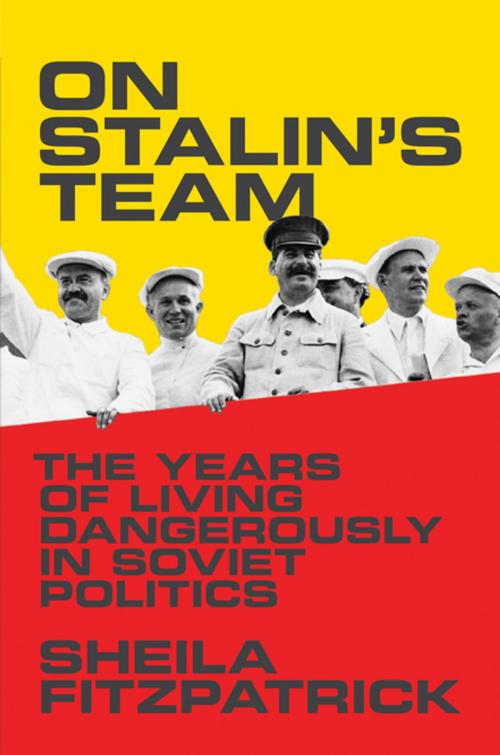On Stalin's Team
The Years of Living Dangerously in Soviet Politics
Nonfiction, History, Asian, Russia, Modern, 20th Century| Author: | Sheila Fitzpatrick | ISBN: | 9781400874217 |
| Publisher: | Princeton University Press | Publication: | September 15, 2015 |
| Imprint: | Princeton University Press | Language: | English |
| Author: | Sheila Fitzpatrick |
| ISBN: | 9781400874217 |
| Publisher: | Princeton University Press |
| Publication: | September 15, 2015 |
| Imprint: | Princeton University Press |
| Language: | English |
Stalin was the unchallenged dictator of the Soviet Union for so long that most historians have dismissed the officials surrounding him as mere yes-men and political window dressing. On Stalin's Team overturns this view, revealing that behind Stalin was a group of loyal men who formed a remarkably effective team with him from the late 1920s until his death in 1953. Drawing on extensive original research, Sheila Fitzpatrick provides the first in-depth account of this inner circle and their families. She vividly describes how these dedicated comrades-in-arms not only worked closely with Stalin, but also constituted his social circle. Stalin's team included the wily security chief Beria; Andreev, who traveled to provincial purges while listening to Beethoven on a portable gramophone; and Khrushchev, who finally disbanded the team four years after Stalin's death. Taking readers from the cataclysms of the Great Purges and World War II to the paranoia of Stalin's final years, On Stalin's Team paints an entirely new picture of Stalin within his milieu—one that transforms our understanding of how the Soviet Union was ruled during much of its existence.
Stalin was the unchallenged dictator of the Soviet Union for so long that most historians have dismissed the officials surrounding him as mere yes-men and political window dressing. On Stalin's Team overturns this view, revealing that behind Stalin was a group of loyal men who formed a remarkably effective team with him from the late 1920s until his death in 1953. Drawing on extensive original research, Sheila Fitzpatrick provides the first in-depth account of this inner circle and their families. She vividly describes how these dedicated comrades-in-arms not only worked closely with Stalin, but also constituted his social circle. Stalin's team included the wily security chief Beria; Andreev, who traveled to provincial purges while listening to Beethoven on a portable gramophone; and Khrushchev, who finally disbanded the team four years after Stalin's death. Taking readers from the cataclysms of the Great Purges and World War II to the paranoia of Stalin's final years, On Stalin's Team paints an entirely new picture of Stalin within his milieu—one that transforms our understanding of how the Soviet Union was ruled during much of its existence.















